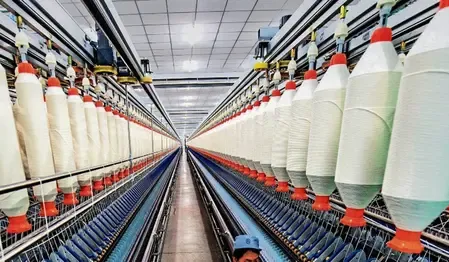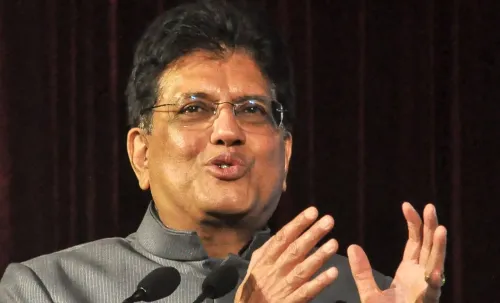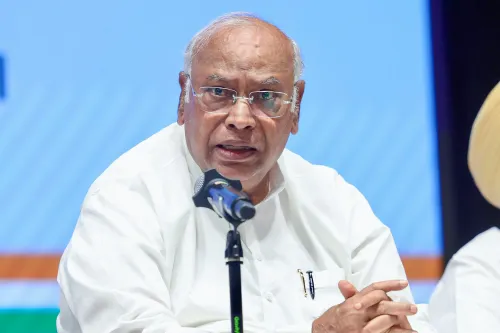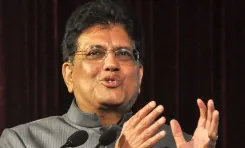Can TN textile body secure GST relief to save the powerloom industry?

Synopsis
Key Takeaways
- Urgent need for GST reduction on manmade fibre from 12% to 5%.
- Over 20 lakh weavers rely on the powerloom industry.
- The industry faces severe challenges due to US tariffs.
- Many powerloom units are shutting down.
- Export incentives are essential for competitiveness.
Chennai, Aug 30 (NationPress) The Federation of Tamil Nadu Powerloom Associations has urged the Union government to lower the Goods and Services Tax (GST) on manmade fibre (MMF) from the existing 12 per cent to 5 per cent, highlighting the escalating challenges confronting the weaving industry due to hefty US tariffs.
According to federation president L.K.M. Suresh, the powerloom sector, which provides employment to more than 20 lakh weavers across six lakh looms in Tamil Nadu and nearly 70 lakh individuals nationwide, is under significant strain.
He cautioned that numerous units have been compelled to cease operations, with looms being sold as scrap.
While acknowledging Prime Minister Narendra Modi's recent announcements regarding GST reductions in certain industries and the suspension of the 11 per cent cotton import duty until December, the federation contended that these initiatives have minimal effect on a sector already grappling with a 50 per cent tariff imposed by the United States.
The federation is advocating for the government to offer export incentives to maintain global market competitiveness.
Regarding taxation, the association pointed out that GST on MMF was initially set at 18 per cent before being reduced to 12 per cent after numerous appeals.
However, synthetic fabrics are taxed at just 5 per cent, creating a disparity that forces manufacturers to pay the higher rate upfront and wait for months to reclaim the remaining input tax credit, resulting in severe cash flow challenges.
Smaller mills, in particular, are struggling with high-interest loans taken to cover this disparity, exacerbating their losses, he noted.
Thus, the federation has reiterated its request for a 5 per cent GST rate on manmade fibre, asserting that this adjustment would restore balance within the textile supply chain and provide the beleaguered powerloom industry with the necessary breathing space to survive.









